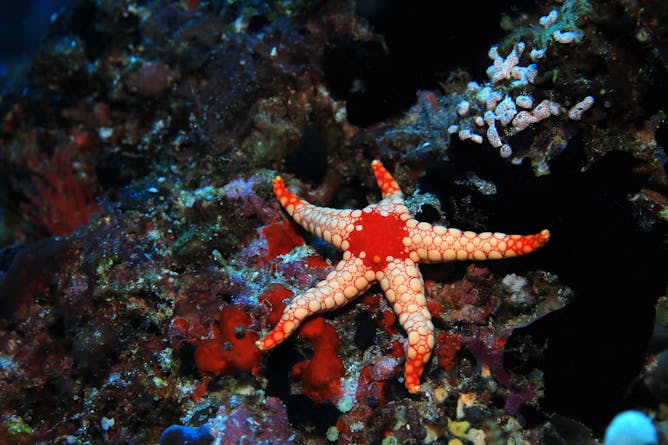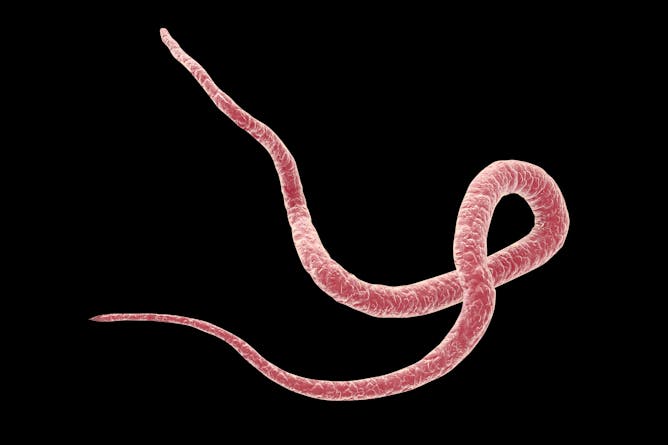| |
|
|
|
|
|
|
| |
|
Editor's note
|
|
Could Chile become the new Saudi Arabia, at the head of some sort of “renewables OPEC”? The idea is not as crazy as it sounds. As the world switches away from fossil fuels, raw materials like lithium (used for batteries) and copper (for generators) will become ever more crucial, and the South American country has the largest reserves of both. Andrew Barron looks at who controls the resources needed to build millions of wind turbines and solar panels.
Starfish might look like uncomplicated creatures but there’s a lot going on beneath their spiny exteriors. Coleen Suckling explains new research that shows starfish species that live deep in the ocean not only have eyes at the end of their arms but can even see in the dark.
The fallout from the 2007-08 financial crisis has kept all eyes on the banking industry. Deep-rooted problems in pensions, meanwhile, have been swept under the carpet. Yet public and private pension funds are in serious trouble and it’s time we dealt with the issue head on, writes Ania Zalewska.
You might think parasites are just an issue of personal health, but they are often used as a metric for political and social conditions. In South Korea, the prevalence of parasites such as giant roundworms were considered an embarrassment. Dramatic steps – such as requiring children to bring stool samples to school on a regular basis – were taken.
|
Will de Freitas
Environment + Energy Editor
|

|
|
Top story
|

Blue Planet Studio / shutterstock
Andrew Barron, Swansea University
The fossil fuel era won't last forever. And a new set of countries will find their reserves of lithium, copper and rare earth metals are in high demand.
|

Shutterstock
Coleen Suckling, Bangor University
Nightvision, ejectable stomachs and regrowable arms mean starfish are more than meets the eye.
|

Kateryna Kon/Shutterstock.com
John P DiMoia, Max Planck Institute for the History of Science
Parasites are not only a personal health problem – they are political too.
|
Health + Medicine
|
-
Catriona Jones, University of Hull; Franziska Wadephul, University of Hull; Julie Jomeen, University of Hull
Tokophobia is a pathological fear of pregnancy and can lead to avoidance of childbirth.
-
Barbara Ribeiro, University of Manchester; Sarah Hartley, University of Exeter
Women's rights and poverty cannot be ignored.
-
Marie-Ann Ha, Anglia Ruskin University
The latest study linking diet with cancer has many flaws.
|
|
Politics + Society
|
-
Chris O'Leary, Manchester Metropolitan University
A new report by the Institute for Fiscal Studies shows home ownership rates have collapsed: today, just one in four middle-income millennials will own their own home.
-
Svenja Bethke, University of Leicester
Criminalising suggestions that Poland was complicit in German atrocities during World War II denies history and will hinder scholarship.
-
James Hamill, University of Leicester
Zuma's almost daily scandals and missteps provided his opponents with perfect electoral fodder. A competent president is the last thing they need.
-
David Mitchell, Trinity College Dublin
Talks between the DUP and Sinn Féin have collapsed again, but power sharing isn't over.
-
Susannah Pickering-Saqqa, University of East London
After a scandal involving Oxfam in Haiti, the UK government has threatened to withdraw aid money from the charity.
-
Dr Aidan Hehir, University of Westminster
Europe's youngest state badly wants into the EU, but the hurdles in place are high.
-
Dan Lomas, University of Salford
The fact Jeremy Corbyn spoke to a Communist spy posing as a diplomat in the 1980s does not make him a Communist agent. Many politicians and diplomats were tricked into similar meetings.
|
|
Arts + Culture
|
-
Enrico Bonadio, City, University of London
In a landmark court decision, graffiti has been ruled to be proper art worthy of recognition and protection.
-
Rob Drummond, Manchester Metropolitan University
When it comes to radio drama, accents can be as important as the script itself.
|
|
Business + Economy
|
-
Ania Zalewska, University of Bath
The 20 largest OECD countries alone have a US$78 trillion shortfall in their pensions obligations.
|
|
Science + Technology
|
-
George Busby, University of Oxford
The first British people were black – and other interesting findings made possible by genomic sequencing.
|
|
Environment + Energy
|
-
Maria Voigt, German Centre for Integrative Biodiversity Research; Erik Meijaard, Australian National University; Serge Wich, Liverpool John Moores University
To save the orangutans we must both protect their forests and stop any hunting and killing within them.
|
|
| |
Featured events
|

|
The Treehouse, Berrick Saul building, York, York, YO10 5DD, United Kingdom — University of York
|

|
University Place, The University of Manchester, Oxford Road, Manchester, Manchester, M13 9PL, United Kingdom — University of Manchester
|

|
Samuel Alexander Building, University of Manchester, Oxford Road, Manchester, Manchester, M13 9PL, United Kingdom — University of Manchester
|

|
327 Mile End Road, London, London, City of, E1 4NS, United Kingdom — Queen Mary University of London
|
|
|
|
| |
| |
| |
| |
| |
|
|
|
|
|
|
|
|